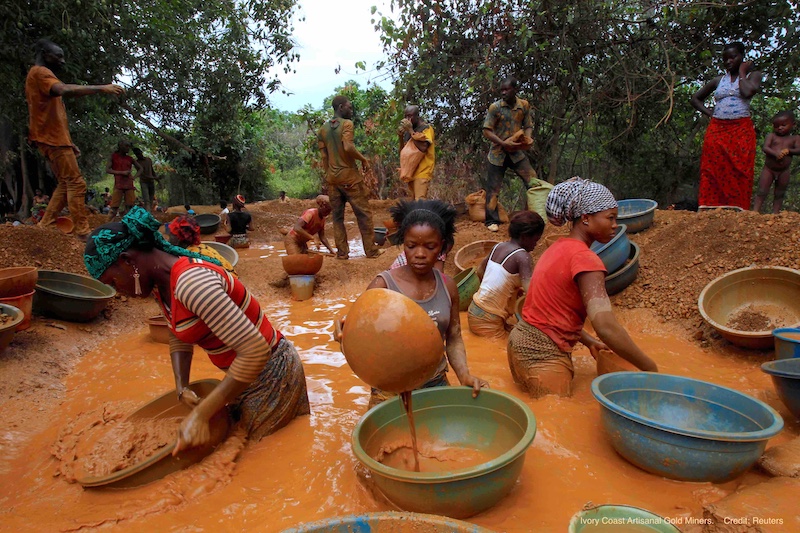 Originally posted on National Jeweler. Read Original Article
Originally posted on National Jeweler. Read Original Article
By Brecken Branstrator
November 11, 2020
Corvallis, Ore.—Custom wedding ring manufacturer Lashbrook has become the 2020-2021 Premier Sponsor of the Mercury Free Mining (MFM) initiative.
The company’s $50,000 contribution will help the program in its efforts to find effective technologies for the safe, mercury-free mining of gold, connect small-scale and artisanal miners with these processes so they can protect themselves, and ensure the miners are more profitable as well.
“We greatly appreciate and commend Lashbrook’s leadership and commitment to the eradication of mercury from the global gold supply chain,” said Toby Pomeroy, MFM founder and executive director. “Industry support like that of Lashbrook is critical to advancing our mission and will help in immeasurable ways.”
Launched by Pomeroy in 2017, the initial goal of MFM (originally called the Mercury-Free Mining Challenge) was to get the jewelry industry to put up a $1 million prize for the creation of a safe, scalable and effective alternative to the use of mercury in mining by artisanal gold miners.
Artisanal miners produce 20 percent of the world’s annual gold supply, and almost all of them use the element to separate the gold they find from other materials.
They burn off the mercury by heating it, sending 12,000 pounds of toxic particles into the air that are harmful to people and the environment.
In January, founder Pomeroy traveled to Ghana to test a separation process called Goldrop that could fulfill his organization’s ultimate goal by using the elutriation process to separate gold, including all heavy elements and minerals, from mineral concentrate and tailings.
Elutriation is a process of precipitating out particles by means of an upward current of fluid, often water or air.
Pomeroy told National Jeweler in an email update Tuesday that following a promising report from the Ghana National Association of Small Scale Miners (GNASSM), MFM was considering raising funds to help bring Festus Adomako Kusi and Peter Osei, GNASSM mining engineers they had worked with in Ghana, and Ishmael Quaicoe from the University of Mines and Technology in Tarkwa, Ghana to the U.S. to continue testing and refining the Goldrop process.
But in March, COVID-19 travel restrictions ended those plans, as it did so many others. Shortly after Pomeroy also learned of the unexpected death of GNASSM’s Kusi.
Pomeroy said MFM hopes the engineers will continue exploring Goldrop’s potential in Ghana.
Meanwhile, the MFM and the Alliance for Responsible Mining (ARM) continue to explore ways to connect innovative “green” mining technologies with interested mining communities.
In an initiative between the two and Coodmilla Ltda.—a Fairmined certified gold mining cooperative in La Llanada, Colombia that has never used mercury in its mining—gold ore concentrates from Coodmilla were sent to the MFM office in Oregon for analysis and comparative processing by two gravimetric separation methods.
The two processors, Goldrop and Gold Strike Micron Gold, processes the Colombian ore samples to demonstrate their efficiencies in recovering gold from its mineral concentrates.
Pomeroy said he recorded a video of them applying their processes to the ore and will submit a report about the procedures and efficiencies to ARM, which will pass it on to Coodmilla.
If either or both technologies seem easy enough to use and allow the miners to mine more profitably, Coodmilla may elect to integrate one or both into its mining methods.
If they do choose to use one or both and find that production is significantly improved, “this will be earthshaking news,” Pomeroy told National Jeweler.
“The Coodmilla Cooperative’s current methods would be considered state-of-the-art by many ASGM processors around the world, and if an improved method of ore processing is available that allows them to mine more efficiently and profitably, the world will want to know about it.”
If all goes as they hope, MFM and ARM then would help set up on-the-ground testing programs in mining communities, and after that, pilot programs if they’d like to keep using them.
